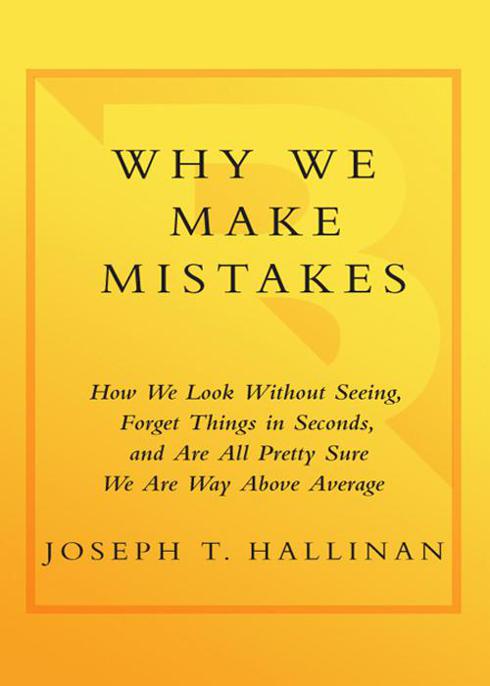
Why We Make Mistakes
How We Look Without Seeing, Forget Things in Seconds, and Are All Pretty Sure We Are Way Above Average
کتاب های مرتبط
- اطلاعات
- نقد و بررسی
- دیدگاه کاربران
نقد و بررسی

February 2, 2009
A Pulitzer winner for his stories on Indiana's medical malpractice system, Hallinan has made himself an expert on the snafus of human psychology and perception used regularly (by politicians, marketers, and our own subconscious) to confuse, misinform, manipulate and equivocate. In breezy chapters, Hallinan examines 13 pitfalls that make us vulnerable to mistakes: "we look but don't always see," "we like things tidy" and "we don't constrain ourselves" among them. Each chapter takes on a different drawback, packing in an impressive range of intriguing and practical real-world examples; the chapter on overconfidence looks at horse-racing handicappers, Warren Buffet's worst deal and the secret weapon of credit card companies. He also looks at the serious consequences of multitasking and data overload on what is at best a two- or three-track mind, from deciding the best course of cancer treatment to ignoring the real factors of our unhappiness (often by focusing on minor but more easily understood details). Quizzes and puzzles give readers a sense of their own capacity for self-deception and/or delusion. A lesson in humility as much as human behavior, Hallinan's study should help readers understand their limitations and how to work with them.

Starred review from January 1, 2009
What an eye-opener! If youre someone who has trouble remembering the names of people (or common objects), if you seem to forget things almost immediately after you learn them, if your memory of past events frequently turns out to be drastically at odds with the facts, relax: youre not alone. Its a truism that we all make mistakes, but Hallinan is more interested in why we make them, in what quirks of our mental makeup allowand even frequently encourageus to misremember important events, forget passwords, mistake strangers for friends, buy more groceries than we actually need, fall for optical illusions, and so on. Turns out these arent sign of illness. Just the opposite: our minds behave this way because our brains are wired this way. Hallinan cites numerous studies and experts (there is a lengthy bibliography), but he keeps the book from becoming a stodgy recitation of facts and statistics through the frequent use of illustrative examples and snappy prose. He also throws in a few big surprises, such as the revelation that multitasking is a myth (we dont do several things at oncewe switch between various tasks without really focusing on any of them). A vastly informative, and for some readers vastly reassuring, exploration of the way our minds work.(Reprinted with permission of Booklist, copyright 2009, American Library Association.)

























دیدگاه کاربران